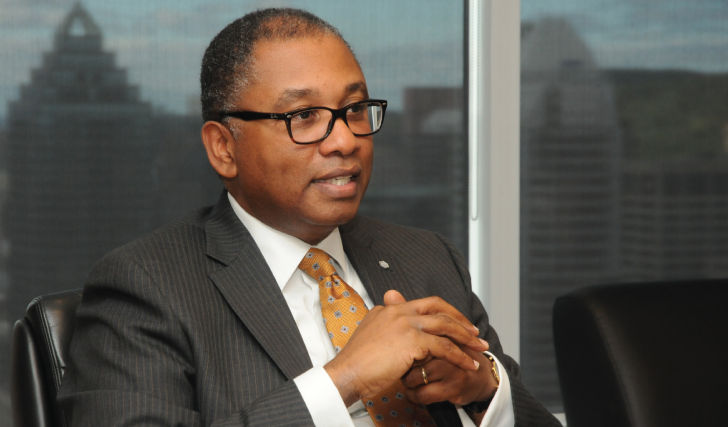For Gregory J. Chrispin the concept of wealth management does not simply refer to investment. It also includes life insurance. This approach best serves the overall needs of the client, he says.
The Insurance and Investment Journal interviewed Chrispin, who is executive vice president, Wealth Management and Life and Health Insurance for Desjardins Group, in Montreal at the end of September. His mandate at Desjardins is to break down the silos of the 14 business segments, which the cooperative has in financial services.
"We have started a huge cultural shift. Our CEO, Guy Cormier, is very keen on this. We have to ensure that our product manufacturing component is symbiotic and meets the needs of our customers. Consumers are more demanding and better informed. People want to know what they are getting into. We must not forget that the way products are consumed has changed. "
Financial products will also change, adds Chrispin. He says he believes, however, that the human touch will remain. "People will always agree to consult an expert for advice. However, they want to better understand what is being offered to them...This fits into a broader scope of wealth management. This fundamental change is everywhere. The banks have taken action.” The insurance industry, however, is picking up the pace, he says.
Life insurance is a very important piece of the wealth management puzzle, he adds. "When people start building their wealth and start planning for retirement, insurance will play a role. At Desjardins, we are well positioned, given our ability to distribute products. It gives us an edge. We want to keep it, by making our processes smoother and simpler for the customer. "
Being accessible 24 hours a day, thanks to mobile phones in particular, changes the relationship a financial product supplier has with its customers, says Chrispin. "We must be sure to respond to their needs. The client, who is also a member of Desjardins, must be at the centre of this equation."
Although fewer and fewer people are going into a bank branch for transactions, Chrispin says the caisse network will remain the driving force behind Desjardins Group. "Just consider mortgage transactions. There will always be a lot of business for this type of product. It also carries an emotional weight for people. It represents the most important transaction of a lifetime. We must be aware of this. "
Chrispin says digital will play a bigger role. "As an industry, we have a lot to reflect on. People will ask for information that is not aimed at pushing a product. There are simple products that can be bought at your fingertips. On the other hand, people want to be able to see the global picture of their financial situation. They do not want to have five or six reminders. They want to see what their financial footprint looks like. "
Social responsibility
He says there must also be awareness that there are consumers who want more autonomy. "At all times, the relationship with Desjardins must be smooth. The customer must not start from scratch each time.” This ease of doing business will show that Desjardins is working for their benefit, he adds.
Chrispin says that by providing a global picture of their situation to clients, the financial institution fulfills its social responsibility, because many people do not make a budget. "If they do not have the knowledge to do it, we must accompany them. At the other end of the spectrum, there are the hyper-specialists, who speak on an equal footing with our people. We must serve them too. From cradle to death, we must accompany the client in all these life choices. If we only meet their needs partially, we will not create as much loyalty as we would by giving them an overall vision of their situation."
The value of insurance will be shown in how it meets the client’s overall needs, he adds. "It's in the value of the finished product that we will differentiate ourselves. Not in its design…What does the client need? It's up to us to tie everything together. We are no longer looking to promote the (product) manufacturer. We will not showcase the product. It is the emotional and psychological aspect of this relationship that will make a difference. It does this through the peace of mind it brings and by the opportunity it gives the consumer to achieve his goals. You have to be first in the hearts of people, as Guy Cormier wishes. We want clients to feel that we took care of them when they needed it.
Insurers will have to provide the right solution to the right network, via the right channel
Insurers are investing massively in their legacy systems with the goal of meeting the customer's expectation of obtaining information quickly, says Gregory J. Chrispin, executive vice president, Wealth Management and Life and Health Insurance, Desjardins Group.
He says this is an expensive task. Access to the data and its use are part of the equation, he says.
"You have to come up with the right solution in the right network via the right channel for the person who has expressed a need. He must be presented with options, then shown what is relevant to him from this selection. The customer no longer wants brochures. He does not have the time or the interest to read them."
Chrispin gives the example of travel insurance. It's not something you buy if you do not intend to go on a trip, he says. "If a pop-up appears while I'm concluding the transaction for my trip, that's where it becomes relevant. We must go in this direction. That's what we are doing at Desjardins right now. It will also be necessary to consider who owns all this data."
What will the insurer need to develop to meet the needs of the consumer of tomorrow? Not just systems, says Chrispin.
"We have to evolve. We must put the customer at the centre of our decision-making. We have to get back to basics. The client does not need to know if a particular person or team is processing his file. He does business with Desjardins. It will be necessary to differentiate oneself, but also to be proactive in helping people manage their financial health. Using metadata should not simply mean looking for information about them. We can think about products and service models."
The insurer will have to categorize people by anticipating their behavior. "One falls practically into the science of psychology. We will not bring this or that element into the conversation if it does not connect with the client’s intrinsic values. It's not easy, but it has to be done. We will be obsolete otherwise."
He goes back to the example of travel insurance to illustrate his point. "We have to find the right moment to offer it. Before, it was complex. Now, this perfect moment is just before he embarks on the plane. Technology allows us to offer it to him on his smartphone. In ten minutes, he completes the buying process."
Desjardins must ensure that all its niches remain relevant, says Chrispin. "By having a wealth management and life and health insurance group, everything has to be in interconnected. These different components of protection are trying to reach a target, whether that be saving for education or retirement planning. All of our networks need to work more closely. We do this well at Desjardins, but we can do even better, he says.





